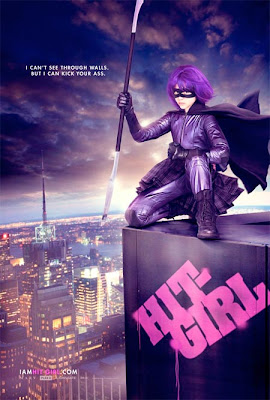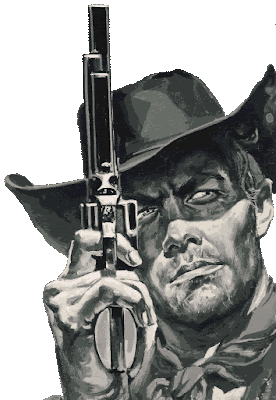Premise: When fourteen year old Joe Toy and his buddies tire of their parents overbearing ways, they decide to build their own house in the woods, away from the restraints of the lives they have come to know.
About: Toy’s House finished in the Top 15 of the 2009 Black List with 15 votes. Indie production company, Big Beach Productions (Sunshine Cleaning, Little Miss Sunshine, Away We Go) purchased the script. Chris Galletta has no previous film credits or sales. He did work as a staff member on The Late Show with David Letterman in 2005.
Writer: Chris Galletta
Details: 116 pages (9/9/09 draft)

Toy’s House poses the question, what if you actually followed through on your childhood fantasy of running away and living on your own? Ah, sounds like another recent film you say? Yes, the similarly themed "Where The Wild Things Are" explored the same idea. There’s one small difference between the two stories though. Toy’s House is actually good.
We all had those moments as teenagers where home felt more like a prison cell than a place of residence. There were all these, like, rules we had to abide by. Rooms had to be cleaned. Homework had to be done. If we went somewhere, we’d have to let our parents know when we’d be back n’ shit. But the thing that really troubled us was the simple fact that parents didn’t *get us.* They spoke an alien language. Talked about how everything we did now would affect our "future." No offense but, who the hell cares about the future when you’re a kid?? All that matters is right now. And right now is a 24 hour cycle of stupidity. We can’t have fun. We can’t let loose. Why can’t there just be a place where these freedoms exist? All the time!
Joe Toy is a 14 year old Freshman who wants to *do* something about this problem. His dickhead divorced father is so out of touch with even the most basic parenting skills that whenever Joe starts beating him in Monopoly, his father actually cheats to win. Their icy relationship has deteriorated to the point where Joe calls the police simply if his dad's being an asshole. Clearly, this situation can't go on any longer.
Joe’s best buddy is the creature-of-habit Patrick, one of those kids cursed with really weird parents. I remember I had a friend like this and to this day I can’t believe my parents let me hang out at his house since everyone assumed, like they do here in Toy’s House, that his parents were serial child molesters. I survived that friendship unscathed but my poor friend, like Patrick, had to live with those weirdos for the rest of his childhood. Having weird parents really is a no-win situation. It’s not like one day they can magically become un-weird. And their weirdness definitely rubs off on you. It has to. You’re around them 24/7. Needless to say, Patrick’s social life is the high school equivalent of 2012.
So when Joe poses to Patrick the radical idea that they run away and build their own house, Patrick, at first hesitant to break from the norm, decides to stand by his best friend. They need to recruit one more member in their not-so-traveling pants gang so they choose Biaggio, an insanely bizarre kid who’s kind of like the Italian version of Pedro in Napolean Dynamite. If Pedro was 100 times more retarded that is.
Their secret society set, they sneak out into the desolate forest (which is actually just a tiny forest preserve a hundred feet from their suburb) and build a barely habitable shack/living quarters.
I was actually a little thrown by Toy’s structure, as when I read the premise, I assumed the building of the house was going to be the main focus of the plot. So when the house is finished early in the second act, I wondered, “Where does this story go now?” Luckily the story shifts nicely into Joe’s obsession with Kelly, his wise-cracking beautiful best friend who he’s secretly in love with (but is going out with some guy who looks like he’s 30).
Because Patrick was hesitant to commit himself to this idea in the first place, he’s none too pleased to find out that Joe’s real motivation for building the house has nothing to do with escaping society – but was merely a ploy to convince Kelly that he’s just as grown-up as her 800 year old boyfriend. It’s a wonderful turn of events then, when he finally brings Kelly by, and is so close to closing the deal, only to see his entire plan foiled at the last second by…well, let’s just say the last person you'd expect.
Things spin drastically out of control after that, and Joe becomes some sort of faux-mountain man, defiantly standing by his idea of roughing it and breaking off from society even though everything about the house is an epic failure. His and Patrick’s friendship deteriorates while the community searches for them. And Biaggio becomes so entrenched in nature he may never leave. It’s a nice take on why fantasies should probably remain fantasies and that while the grass may be greener on the other side of the hill, it’s still the same dirt underneath.
It’s no secret why I liked this script. It’s got Wes Anderson written all over it. Shades of Rushmore. Shades of Junior Executive. Shades of Ferris Bueller’s Day Off. Galletta’s got a gift for offbeat humor and an ear for quirky dialogue that’s actually funny (as opposed to certain writers whose quirky dialogue sounds like a desperate plea to be funny).
The weirdness of these characters is the real strength though. Watching Patrick’s clueless mom try to convince her son that the new “Bruce Die-Hard” movie is called “Festival” (she’s unknowingly referring to The Fifth Element) or watching Biaggio camouflage himself up against a tree for hours at a time, even though everybody can see him, just gives these characters a comedic edge you don’t find in a lot of these cookie-cutter comedies. There’s even some nice character work here, particularly in relation to Joe’s broken family and how that’s shaped his reckless approach to life. It’s all nicely done.
You know, I’ll be honest, I was really skeptical during the first 15 pages of this script, even going so far as to warn a couple of people to stay away from it. But it ended up being the funniest script I’ve read in months.
[ ] What the hell did I just read?
[ ] wasn’t for me
[xx] worth the read
[ ] impressive
[ ] genius
What I learned: You know I hate bringing up the “First Ten Pages” rule because I think it sends writers the wrong message. “Make the first ten pages of your script amazing so you reel in the reader!” Umm, okay, but hold on. Doesn’t that imply that once those ten pages are over, you can half-ass the rest of the script? Shouldn’t you strive to make *every* page amazing?
But Tree’s House reminded me why the rule is pertinent. I almost gave up on this script ten pages in. The first scene has Joe doodling in school. The second has him talking to a girl. The third has him dealing with his father at home. Nothing fun or exciting or unique or surprising is happening here. And the strength of the script - its offbeat humor – doesn’t come off right away. The ONLY reason I kept reading was because it was a Black List script, which gave me some indication that other industry people thought it was worthy of continuing. Now since you don’t yet have the luxury of having 15 other industry vets vouching for you when you send your script to someone (yet), you gotta do something that makes us take notice in those first ten pages. It doesn’t have to be a car blowing up. It doesn’t have to be a murder. But it should be something. If I were you, I’d pinpoint the one thing you do best as a writer, and try to write pages that highlight that strength. So if you’re great at dialogue, then the opening scenes should be dialogue. If you’re a great action writer, then the first scene should be action. If you’re a master of description (S. Craig Zahler for example), then build a scene around that. Whatever the case, particularly if your script is more character-based (aka slow), figure out a way to make those first 10 pages pop. Just don't let off the gas when they're over.










